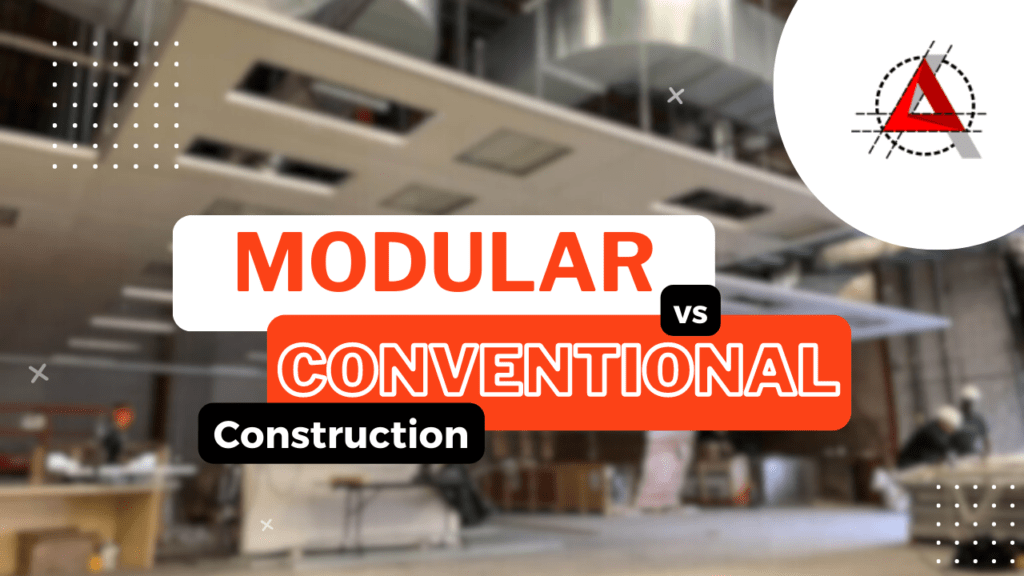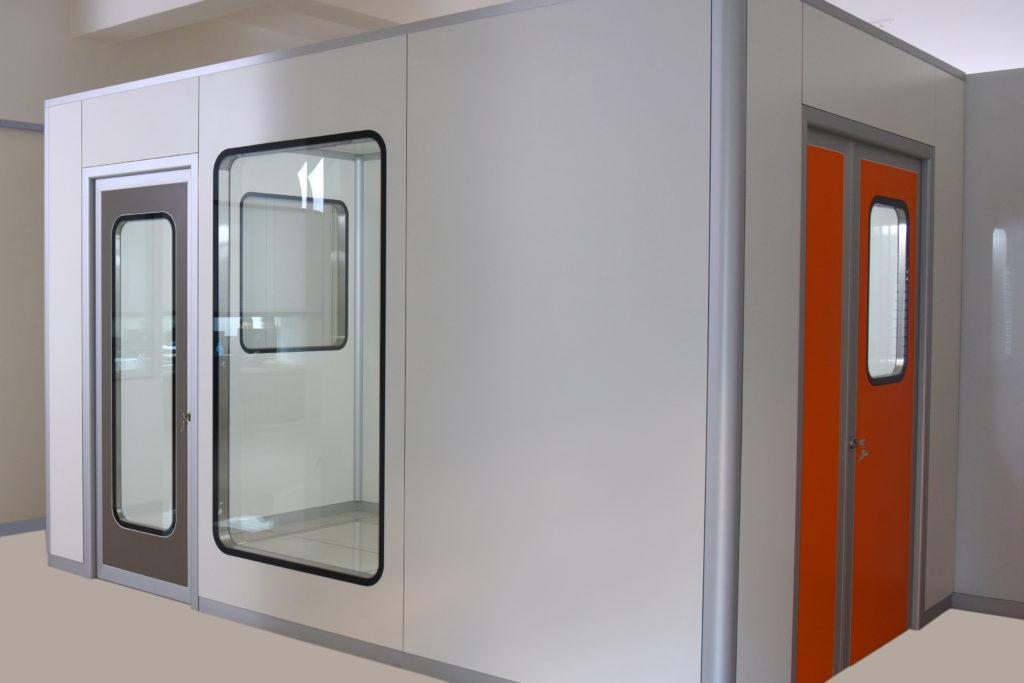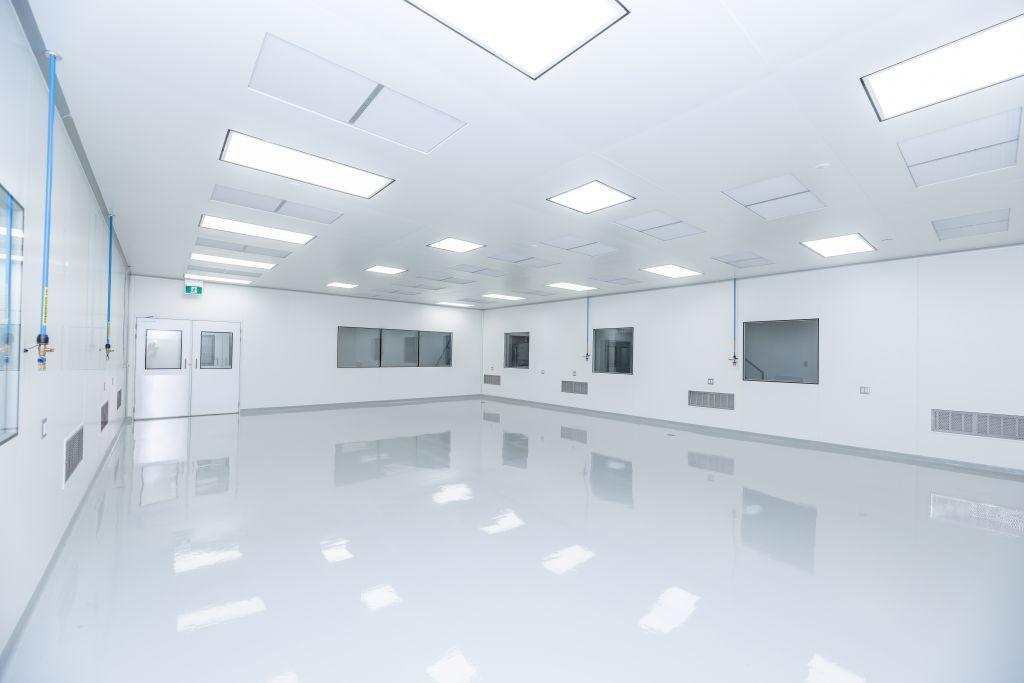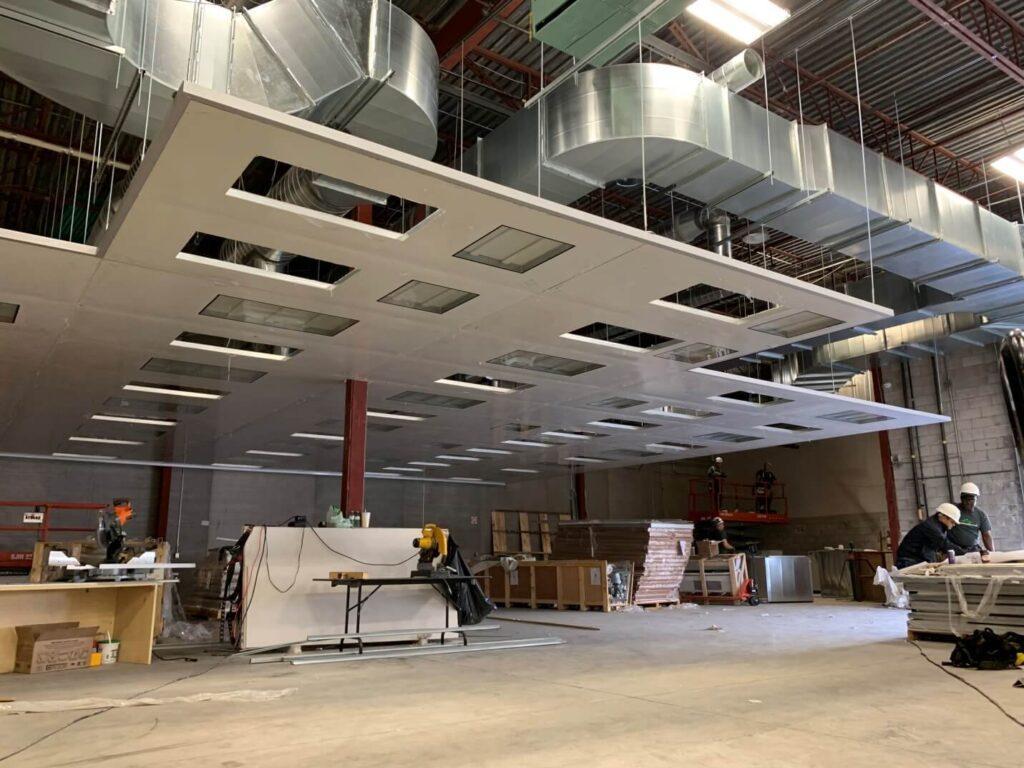Why is Modular Construction Growing in Demand over Conventional Construction?

The construction and engineering industries are constantly changing and evolving, bringing in advanced methods of construction, innovative materials, and new economical methods of doing business. As the world becomes more environmentally aware, and the construction industry more progressively competitive, contractors and engineers are coming up with ways to switch from a conventional and traditional way of construction to modernized, Modular processes.
While building a cleanroom facility, many decisions and choices must be made. The facility should be cost-effective, suitable to the company’s needs, and developed under necessary regulatory requirements and certifications. The top two choices: Conventional and Modular Construction.
What is Conventional Construction?
Conventional construction refers to the traditional construction methods that have been in practice for many years. It makes use of metal studs and drywall in the creation of walls and ceilings, which are covered with Epoxy Coating, PVC, or Fibreglass Cladding. The building process typically involves site preparation, foundation, framing, roofing and exterior finishes, interior finishes, and mechanical, electrical and plumbing (MEP) systems. While they offer a high degree of customization and flexibility in terms of design and materials, conventional construction methods can be time-consuming and labor-intensive.
What is Modular Construction?

Modular construction, also known as prefabricated construction or offsite construction, is growing in demand over conventional construction. In simple terms, it involves developing the predesigned structure in sections off-site, and then installing the various different parts together on-site.
Minimal construction is completed on-site, reducing space requirements and labour costs as well as decreasing overall timeline. Majority of the facility is developed in a specialist factory. Once the structure is ready as per customized design, it is transported to the site, and assembled to fit the building layout. Additionally, entire rooms and units can be pre-fabricated using Modular concepts off-site. Steel structural frames can be built on-site, and the prefabricated panels would be inserted into place, and connected to utilities and power.
Benefits of Modular Construction

Modular construction has been known to offer many advantages over conventional construction, including faster construction times, reduced waste, cost savings, improved quality, and flexibility. Here Are some of the reasons why Modular Construction seems to be growing in demand:
- Faster construction time: Modular construction involves building components offsite in a controlled environment, which allows for faster construction times compared to traditional construction methods. Since many components are pre-fabricated and pre-engineered, on-site assembly can be completed much more quickly.
- Cost-effective: It is often perceived those Modular solutions cost more as the materials and building components are generally costlier. However, when fully designed, Modular cleanrooms can be installed up to 20-40% faster than traditional cleanroom construction, saving labour and time costs, while significantly decreasing downtime. The controlled environment of a factory setting can also help reduce delays, errors, and rework.
- Improved quality: Modular construction is done in a controlled environment with strict quality control measures, which can result in a higher-quality product. The use of standardized components and procedures can help ensure consistency and reduce the risk of errors.
- ISO Class ratings: Modular cleanrooms have the ability to moderate ISO Class ratings, mainly controlled by mechanical systems (HVAC filtration). The monolithic surfaces of the cleanroom panels also allow inceptive, and ongoing cleanliness, as well as affinity with most cleaning and disinfection agents and conventions.
- Reduced waste: Modular construction can help reduce construction waste because the manufacturing process is more streamlined and precise. Materials are used more efficiently, and waste is minimized. More specifically, the usage of aluminum parts also benefits the environment, as manufacturing can be done with recycled contents, developed to reduce waste (such as that related to drywall installation and drilling as often noticed with conventional construction) and can be relocated or rebuilt.
- Flexibility: Modular cleanrooms offer much more flexibility to the client in terms of remodeling or relocating the structure. Modular components can easily be taken down and put back together without damage and waste. Furthermore, this construction style offers a large variety of prefabricated utility cut-outs and integrated components which are usually difficult to find with conventional construction.
- Controlled Environment Management: Critical environmental parameters (temperature, humidity, air flow & pressure) are also supplemented with Modular construction. Transmission of humidity cannot be halted, only slowed, and so with Modular construction of the cleanroom with insulated sandwich panels, the hygroscopic components assist in controlling humidity. The efficiency of the tight-fitting panels in the construction of the structure also aids with pressure control.
Overall, Modular Cleanroom construction significantly reduces labour cost, construction time, downtime, and any other associated costs, while enhancing customized solutions.
Gaining Popularity
A range of contributing factors influence contractors and companies to choose Modular and prefabricated construction over conventional. This type of construction offers builders more opportunities to be creative and allows clients to have more control for customization.

Reasons for Growing Traction in the Cleanroom Construction Industry
1. World Economy – The Perfect Solution in the Midst of Global Recession:
Recent years have seen a recession in the global economy, disabling governments and companies from spending high costs on construction. Modular construction is greatly cost-effective and allows governments and companies to save money and time with prefab systems.
2. Construction Industry – Staying Competitive in the Market
There are numerous companies and contractors seeking work in the construction industry today. To have a competitive edge over the other options, a company must adapt and offer alternative and advanced methods of services. Modular construction is a great way for clients to save money, have customization control and receive a quicker end product. For example, a contractor providing Modular Cleanroom solutions has a greater advantage over other businesses offering traditional construction.
3. Space-Reduction – Space-Saving Systems
As the population continues to rise globally, overcrowding and shortage of housing and building facilities can seem to be a growing problem. With Modular structures, this can be avoided. Modular construction allows quick assembly and minimal space for assembly. These structures can be made off-site in specialist factories and installed immediately on site – allowing creative applications to become much more accessible in comparison to traditional.
4. Safer Working Conditions – Health & Safety First
Lastly, Modular Cleanroom construction provides an excellent level of employee and worker safety. There are no associated dangers and hazards on-site as materials and structures are prefabricated off-site, often according to health and safety standards using automated machinery.
5. Environmental Benefits – A Green Construction Solution
With the reduction in waste of materials, Modular Cleanrooms allow for a more environmentally beneficial solution from prefabricated systems. As the world becomes inclined to reducing the carbon footprint, Modular Construction aids in establishing a recyclable, reusable, and waste-free structure, while minimizing construction debris, dust and damage on-site.
Overall, Modular Construction offers many advantages over conventional construction, including faster construction times, reduced waste, cost savings, improved quality, and flexibility. As a result, it is becoming an increasingly popular option for a wide range of construction projects, from residential and commercial buildings to industrial facilities and infrastructure projects.
GET IN TOUCH
Complete the form below to get in touch with our team.
